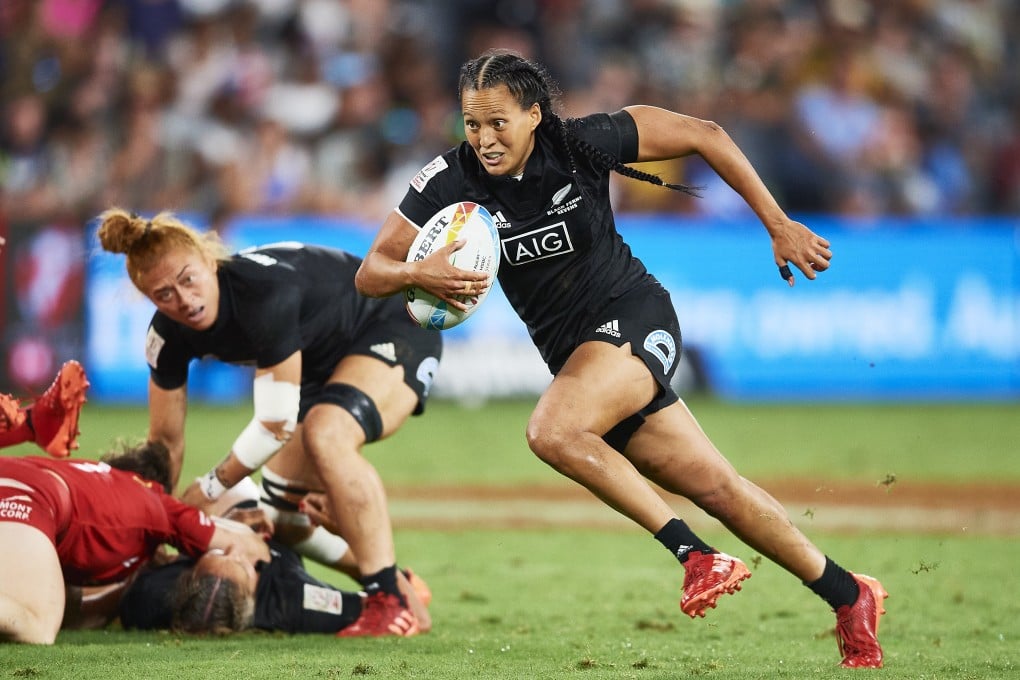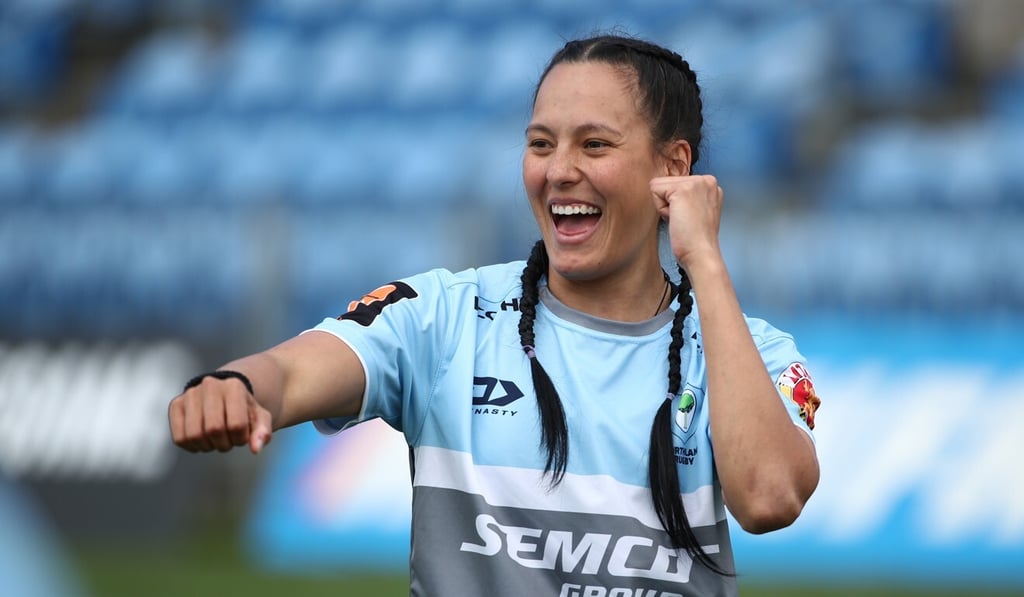How New Zealand rugby star Tyla Nathan-Wong’s Chinese grandfather helped her overcome gender, racial and size discrimination
- Tyla Nathan-Wong becomes first Black Ferns sevens player to reach 1,000 points despite being overlooked early in career
- Being ‘small, female and part-Chinese’ is not related to ‘what I bring to the rugby field’, says two-time World Cup winner

At just 26, New Zealand rugby sevens player Tyla Nathan-Wong finds herself entering record books and breaking boundaries. The two-time Rugby World Cup Sevens winner, Commonwealth Games gold medallist and Olympic Games silver medallist this year became the first Black Ferns sevens player to reach 1,000 points – only the second woman in Sevens Series history. She was also nominated as the overall 2019 women’s player of the year after a season cut short by Covid-19.
Such milestones did not come easy, as Nathan-Wong attests to. Whether it be over her gender, size or part-Chinese or Maori heritage, she vowed from very early on to shut each assumption down one by one.
“People have these opinions of you and judge you – prejudge you straight away on what you look like before giving you a chance to show you as you. Just because I’m small, just because I’m female and just because I’m part-Chinese, it’s got nothing to do with what I can do.
“Yes, it’s who I am, but it’s not what I am. It’s what I bring to the rugby field and team environment,” Nathan-Wong told the Post after rounding off a summer stint in the 15s game with Northland in the Farah Palmer Cup.

“To be a mixed-raced female of Chinese-Maori-European heritage at the top level of a sport that’s not known for Chinese or Asians in general, it’s pretty special. I’m willing to continue to show that it doesn’t matter where you come from – your ethnic background or societal norms – if you love or want to do something, go ahead.”
